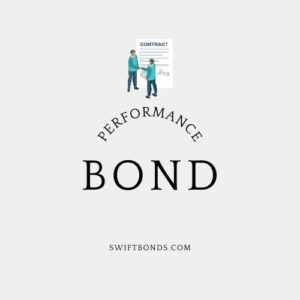You can now apply online for a Performance Bond - it only takes three (3) minutes! (Yep, we timed it.) Click here:
Or you Can download our Express Performance Bond Application (click to download form)
- Complete the form and email to [email protected]
- Be sure to include the Contract and Notice of Award letter (bid specs from the obligee).
- Send the bid results if you have them

Payment and performance bonds are typically paid by your business directly as part of the contractual process (for example, the contractual AIA forms that are typically used in the industry require the contractor to pay for the construction bond). The bond amount affects the premium costs and the qualification process for contractors. There are some cases when other arrangements cannot be made; however, these agreements require more time from both parties to protect against risks of failure due to unforeseen circumstances outside of just not completing the project on schedule (for example).
That said, the owner indirectly pays for the bond as all contractors build the bond cost into their bid!
Who provides the Performance Bond? A Surety Company
In most cases, a construction performance bond or contract bonds are provided by an insurance company or other financial institution, known as the surety. These institutions provide the bond and cover it for any damages that may occur to them during their agreement with you. In industries like construction and real estate development they’re very common - so don’t forget about them!
What is the Cost of a Performance Bond?
The cost of a performance bond is typically a percentage of the total contract value, usually ranging between 1% and 5%. Several factors influence the cost, including the contractor’s credit score, business history, and the overall risk associated with the project. The surety company will review the contractor’s application and may require additional documentation or information before issuing the bond. This thorough review process helps the surety company assess the risk and determine the appropriate bond cost, ensuring that both the contractor and the project owner are adequately protected.
If you are a contractor looking to bid on an upcoming project, it is important for you to know that there may be some hidden costs. A performance bond will cost the owner of the project money as all bidders include this in their bids. A bid bond is often required as a prerequisite for bidding on projects. This means if your company does not win and they must pay out a performance bond, then it’s really them who pays for this charge through indirect payment via other contractors’ fees.
A performance bond is an important contract requirement. A performance bond for contractor ensures that they will complete the work and satisfy all of their contractual obligations in relation to time, materials, quality, etc. To get a performance bond, contractors must understand the process and requirements, including securing a bid bond and working with surety brokers. All bidders should include this cost so don’t be surprised if it’s included when you receive your bid package!
Why Do I have to Purchase the Performance Bond?
Construction performance bonds are a great way to ensure that the construction or development process runs smoothly. In order for these important projects to go according to plan, it’s necessary for everyone involved in them - from developers and architects on down through contractors and subcontractors - be able to pay up if they don’t live up to their end of the bargain.
Performance bonds work by guaranteeing that contractors meet the obligations outlined in their contracts, protecting project owners from contractor defaults and financial loss, particularly in large-scale or public projects.
Contract surety bonds provide an additional level of security when it comes time for paying out sums which might otherwise not get paid at all due to delays or other unforeseen circumstances. As a sign of good faith, performance bonds are often provided by the party providing services on an . In industries like construction and real estate development, they’re common in order to protect both parties involved from possible lack of work or money-related issues that may arise.
Go here for our Performance Bond Cost Calculator
Benefits of Performance Bonds
Performance bonds offer numerous benefits to project owners, contractors, and subcontractors. For project owners, these bonds ensure that the contractor will complete the project according to the terms of the contract, reducing the risk of delays or cost overruns. For contractors, performance bonds provide a competitive edge by demonstrating their commitment to fulfilling contractual obligations. Subcontra
ctors and suppliers also benefit, as performance bonds guarantee that they will be paid for their work and materials, helping to maintain a stable and reliable supply chain. Overall, performance bonds contribute to smoother project execution and financial security for all parties involved.
Role of the Surety Company
The surety company plays a crucial role in the performance bond process. They issue the bond and guarantee that the contractor will perform the work as specified in the contract. If the contractor fails to meet their obligations, the surety company steps in to investigate the claim and take corrective action. This may involve paying out funds to the project owner or completing the project themselves. The surety company’s involvement provides a level of assurance to project owners and subcontractors that the contractor will fulfill their contractual duties, thereby fostering trust and reliability in construction projects.


